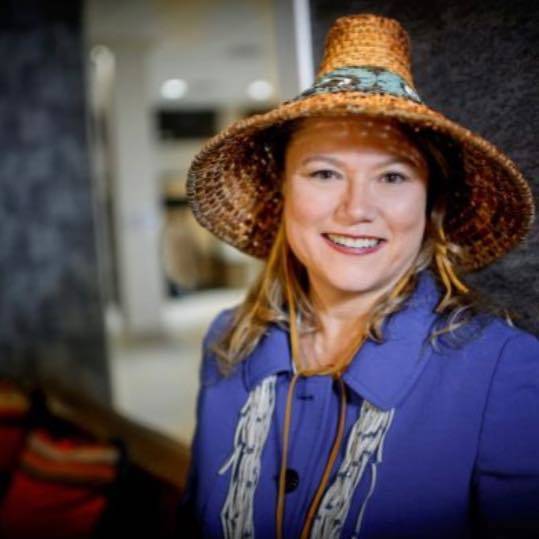The Quinault Indian Nation elected Guy Capoeman as the new president during its 2021 Annual General Council Meeting last Friday. Stepping down as president after five, three-year terms, Fawn Sharp said she is excited to take on her new role as vice president for the tribe, focused, she said, on advocacy and communication. Sharp posted to social media over the weekend, “It’s a new day at Quinault and we have a new President, Guy Capoeman. I’m positive Guy will bring new energy, ideas, and vision to the table and there’s no doubt in my mind Quinault will continue to grow under his leadership.”
Capoeman is a well-known artist, carver and canoe maker who has also been active in tribal government. “Thanks to the Quinault Nation for their work and effort in getting me this far,” he said during a phone interview Monday. He said he is eager to carry forward the work of the council. His focus will be mostly domestic issues for the tribe, he said, things like housing, economic, and health issues, with Sharp able to focus on the national level.
In the past several weeks, Sharp had social media posts indicating she was running for re-election as president, but she made a special point of thanking the women who nominated her for the vice president position. The council also re-elected Treasurer Larry Ralston and Secretary Latosha Underwood along with other Business Committee members.
Dozens of social media posts over the weekend directed congratulations at both Sharp and Copoeman and indicated the two would make a formidable team.
Sharp said during her 15 years as president she’s worked with four U.S. presidential administrations. Although she said she did not have “a single engagement with the Trump administration,” she said that in the first week of the Biden administration they had five engagements, some of those related to recent disaster declarations. Sharp says the tribe recently declared two states of emergency in the last 90 days, one for sea level rise after there was an ocean breach into the lower village of Taholah, and another for a potential landslide that threatens the only access road into Taholah.
Sharp plans to continue to serve in her elected role as president of the National Congress of American Indians (NCAI), the most influential body advocating for Native American and Alaska Native rights. She said part of the requirements of that are that she remain an elected official with the Quinault tribe and her VP role not only qualifies her, it frees her up for advocacy trips to Olympia and Washington D.C.. She said that as president of the NCAI she recently assisted in securing $32 billion for tribal governments in the American Rescue Plan Act. The balance of that is divided among the tribal governments. Sharp is working this month on the distribution of those funds.
“This is the largest appropriation to Indian country ever. It’s a historic appropriation.” said Sharp. Most of the tribe’s federal funding goes through the Department of Interior, the VA, or the Indian Health Service. She added, “The U.S. Treasury has never had to deploy this significant funding to Indian country. So I’ll be playing a key role in how that’s going to be distributed.”
As the tribe continues to work to move its coastal village to higher ground, the timing for some of these recovery dollars is pretty good too, says Sharp.
“We secured $1.3 million out of the American rescue plan for housing, and we know that the opportunity in front of us is going to be significant. We’re going to invest as much of this rescue plan as we can into the relocation efforts.” The tribe has built its first building called the Generations Building, which will house the senior program, Headstart, and their first Boys and Girls Club chapter.
Sharp said another item on her radar is the recent announcement of Washington Insurance Commissioner Mike Kreidler urging the insurance industry in Washington to work with Native Americans on adopting policies of consent on environmental projects that affect tribal nations.


